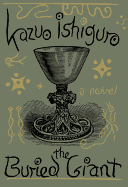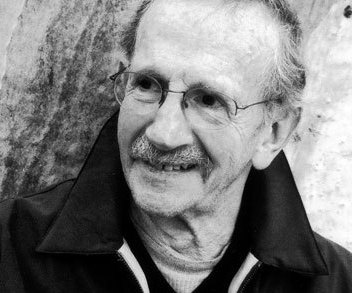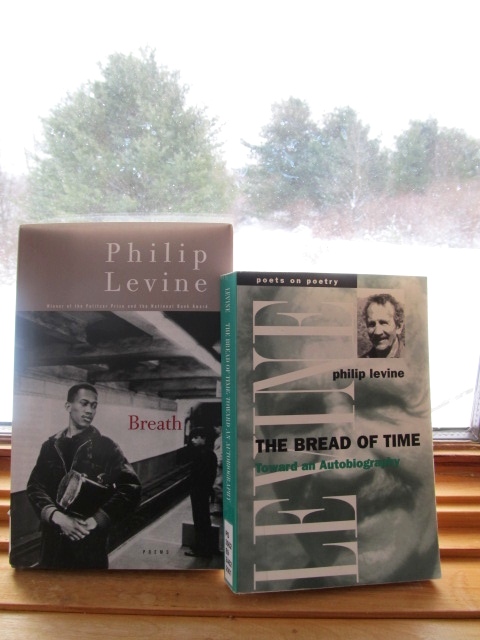 |
| photo: Sam Gregory Photography |
M.O. Walsh is from Baton Rouge, La. His fiction and essays have appeared in the New York Times, the Oxford American, the Southern Review, American Short Fiction and Best New American Voices. A graduate of the MFA program at the University of Mississippi, he is currently the director of the Creative Writing Workshop at the University of New Orleans. My Sunshine Away (Putnam, February 10, 2015) is his debut novel.
On your nightstand now:
The Poser by Jacob Rubin, Chase Us by Sean Ennis, The Fates Will Find Their Way by Hannah Pittard, We Are Not Ourselves by Matthew Thomas, So Long, See You Tomorrow by William Maxwell and My People's Waltz by Dale Ray Phillips. Some of these are first reads, most are rereads.
Favorite book when you were a child:
Choose Your Own Adventure books, hands down. I remember them stacked up on the headboard of my bed. I could make my way through Mayan temples, be a knight with King Arthur or take a rocket ship to outer space. It was heaven for a kid sitting alone in his room. Every once in a while I would be eaten by an alligator, get lost in a maze or be zapped by a ray gun, sure, but it was pleasure.
Your top five authors:
Lewis Nordan, Barry Hannah, Italo Calvino, Toni Morrison and Leo Tolstoy. The number of worthy writers not on this list is, obviously, horrifying.
Book you've faked reading:
I really don't fake reading books. I happily own the fact that I know far less than I could. Don't get me wrong, I love to read, but if I read every book I was supposed to, then I likely wouldn't have any friends, and I like my friends a great deal. I won't apologize for that.
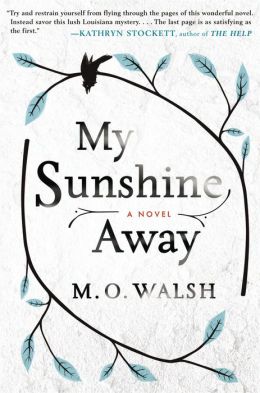 Book you're an evangelist for:
Book you're an evangelist for:
Music of the Swamp by Lewis Nordan. Nordan is one of the best writers that too few people know about. I've read a lot of the classic Southern fiction, and Music of the Swamp is one of the first books I ever saw myself in, having grown up in the South. In a literature full of rough and gritty men in pickup trucks, Lewis Nordan is the sensitive boy standing out in the yard. It's perhaps the most big-hearted book that I know of. I push it on anyone with the hands to take it.
Book you've bought for the cover:
Magic for Beginners by Kelly Link. Who knew the cover was only the first magic of that incredible collection?
Book that changed your life:
The Collected Stories of Edgar Allan Poe. When I was in eighth grade, someone gave me a leather-bound edition of this with gold lettering. I suppose I thought it was actual gold because I cherished the book like it was a first edition from the 19th century. When I think about it now, though, I wonder who gave that to me, all those tales of the dark and deranged. Did they sense something about me that I didn't understand? Regardless, I spent nights reading "The Tell-Tale Heart" until I basically had it memorized. Even now, I admire any story that can use exclamation points without irony.
Favorite line from a book:
"There is great pain in all love, but we don't care, it's worth it." --Lewis Nordan, Music of the Swamp
Which character you most relate to:
Sugar Mecklin in Music of the Swamp.
Book you most want to read again for the first time:
Slaughterhouse-Five by Kurt Vonnegut. The imagination behind this book left a huge mark on me. I've read it several times since, and always enjoy it, but I've never gotten that same mischievous glee I had the first time, which felt almost like I was inventing a world that no one else knew about.
Favorite setting in fiction:
Willa Cather's Nebraska prairie in My Ántonia. I can recall her descriptions of winter there, of the herds of buffalo Jim fancies roaming beneath the grasses, as if they are from my own youth, and I have never once been to Nebraska. That, to me, is the definition of great fiction.
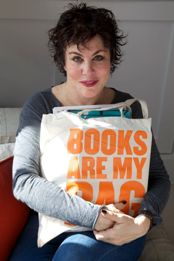 "I always ask the booksellers to look at me and recommend a book; 9 out of 10, they get it right; it's usually a book about someone dysfunctional. To me, bookstores are like brothels of imagination, each book is luring me over going, 'Read me, read me.' "
"I always ask the booksellers to look at me and recommend a book; 9 out of 10, they get it right; it's usually a book about someone dysfunctional. To me, bookstores are like brothels of imagination, each book is luring me over going, 'Read me, read me.' "








 In a new statement posted on the Borderlands website, Beatts wrote that effective immediately, "we will be offering paid sponsorships of the store. Each sponsorship will cost $100 for the year and will need to be renewed every year. If we get 300 sponsors before March 31st, we will stay open for the remainder of 2015." He also offered preliminary details on sponsor benefits, and said the goal is to "gather enough paid sponsors to cover the projected short-fall in income that will be the result of the minimum wage increase in San Francisco." Plans call for soliciting sponsors again at the beginning of 2016.
In a new statement posted on the Borderlands website, Beatts wrote that effective immediately, "we will be offering paid sponsorships of the store. Each sponsorship will cost $100 for the year and will need to be renewed every year. If we get 300 sponsors before March 31st, we will stay open for the remainder of 2015." He also offered preliminary details on sponsor benefits, and said the goal is to "gather enough paid sponsors to cover the projected short-fall in income that will be the result of the minimum wage increase in San Francisco." Plans call for soliciting sponsors again at the beginning of 2016.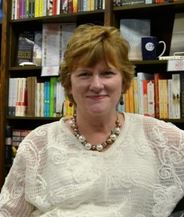
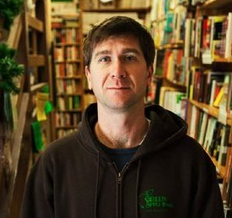
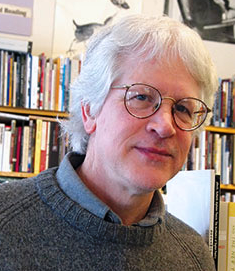
 TriAltea USA
TriAltea USA Amazon's Prime Now
Amazon's Prime Now  "Be like Sherlock Holmes," advised Kelly Evert, the head gift buyer for Village Books and Paper Dreams in Bellingham, Wash., during a panel discussion at Winter Institute 10 last week in Asheville, N.C. The panel, entitled Strategic Buying for Non Book Inventory, also featured Steve Bercu, the owner of BookPeople in Austin, Tex., and Danny Givens, toy buyer at Givens Books in Lynchburg, Va., and was moderated by Sarah Goddin of Quail Ridge Books and Music in Raleigh, N.C.
"Be like Sherlock Holmes," advised Kelly Evert, the head gift buyer for Village Books and Paper Dreams in Bellingham, Wash., during a panel discussion at Winter Institute 10 last week in Asheville, N.C. The panel, entitled Strategic Buying for Non Book Inventory, also featured Steve Bercu, the owner of BookPeople in Austin, Tex., and Danny Givens, toy buyer at Givens Books in Lynchburg, Va., and was moderated by Sarah Goddin of Quail Ridge Books and Music in Raleigh, N.C.
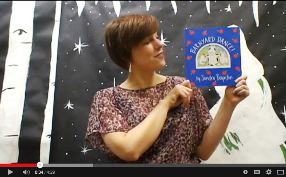

 The Unfortunate Importance of Beauty
The Unfortunate Importance of Beauty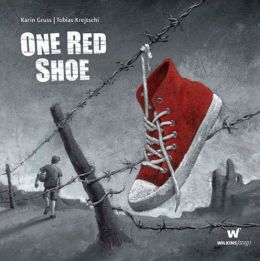 The GBO described the book this way: "In a dark, smoke-filled office in the Gaza Strip, an unnamed photojournalist answers his vibrating cell phone. A grenade has hit a school bus carrying children to a sports field, and he is sent to the clinic to document the aftermath. For the journalist, this is just another day on the job‹but this assignment will forever change his jaded perspective on the violence in the region.
The GBO described the book this way: "In a dark, smoke-filled office in the Gaza Strip, an unnamed photojournalist answers his vibrating cell phone. A grenade has hit a school bus carrying children to a sports field, and he is sent to the clinic to document the aftermath. For the journalist, this is just another day on the job‹but this assignment will forever change his jaded perspective on the violence in the region.
 Book you're an evangelist for:
Book you're an evangelist for: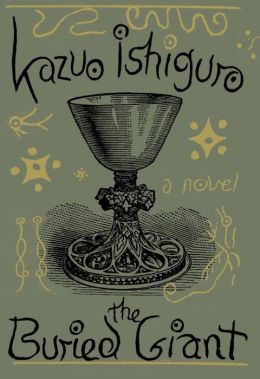 The decade-long wait for a new novel from Kazuo Ishiguro (Never Let Me Go) ends with a dark and elegant allegory that shows the author at the top of his game.
The decade-long wait for a new novel from Kazuo Ishiguro (Never Let Me Go) ends with a dark and elegant allegory that shows the author at the top of his game.